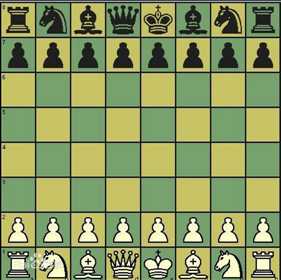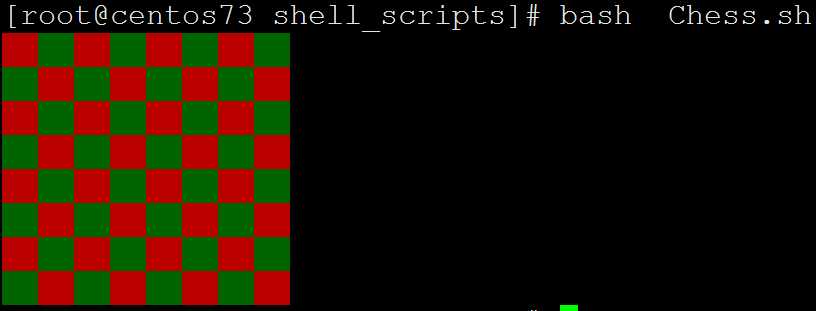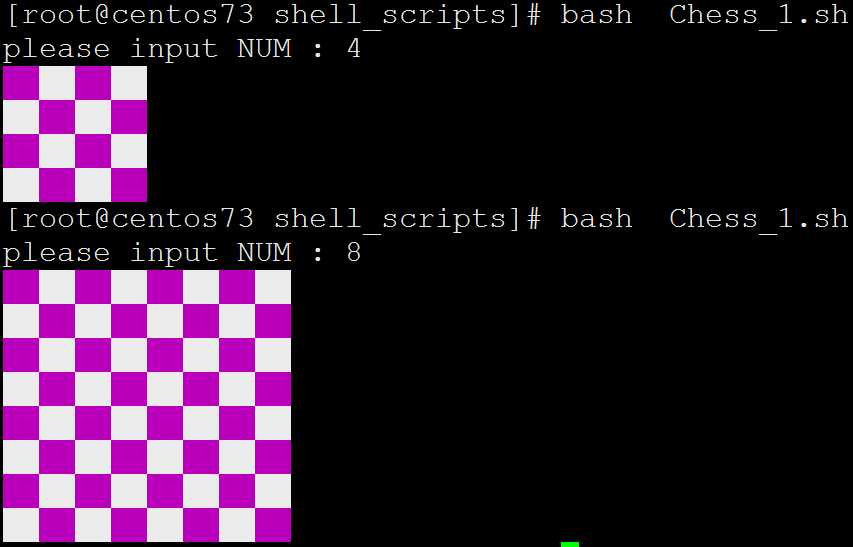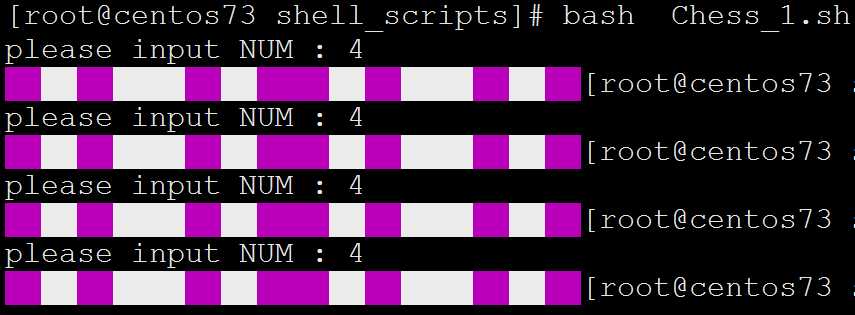标签:常用 博客 centos7 declare als *** 计算 class mkdir
[root@centos73 ~]# cat shell_scripts/filetype.sh
#!/bin/bash
#Author=wang
RED="\033[31m"
YELLOW="\033[0;33m"
CYAN="\033[36m"
PURPLE="\033[0;35m"
RESET="\033[0m"
if [ $# -ne 1 ] ; then
echo -e "$RED you must enter a parameter$RESET"
exit 1
fi
file=$1
type=`ls -ld $file |cut -c 1`
#使用case判断文件类型
case $type in
-)
echo -e "$CYAN general file$RESET"
;;
d)
echo -e "$YELLOW dir$RESET"
;;
l)
echo -e "$PURPLE link file$RESET"
;;
*)
echo "other"
;;
esac
[root@centos73 ~]# bash filetype.sh
you must enter a parameter
[root@centos73 ~]# bash filetype.sh /etc/passwd
general file
[root@centos73 ~]# bash filetype.sh /etc/
dir
[root@centos73 ~]# bash filetype.sh /etc
dir
[root@centos73 ~]# bash filetype.sh /bin/python
link file
[root@centos73 ~]# bash filetype.sh /bin/python
link file
[root@centos73 ~]# bash filetype.sh /bin/python
link file
[root@centos73 ~]# echo $PATH
/root/shell_scripts:/usr/local/sbin:/usr/local/bin:/usr/sbin:/usr/bin:/root/bin


涉及到了颜色,相关知识参考博客给输出的字符或者字符串添加颜色
先判断参数,也就是文件是否存在
if [ $# -ne 1 ] ; then
echo -e "$RED you must enter a parameter$RESET"
exit 1
第1个参数赋值给变量
file=$1
type=`ls -ld $file |cut -c 1`
[root@centos73 ~]# ll -d /etc/passwd
-rw-r--r--. 1 root root 2766 Jun 29 16:52 /etc/passwd
[root@centos73 ~]# ll -d /etc/passwd | cut -c 1
-
[root@centos73 shell_scripts]# cat file_KS.sh
#!/bin/bash
#Author=wang
for i in `ls -1 /etc/rc.d/rc3.d` ; do
type=`echo $i | cut -c 1 `
if [ "$type" == "S" ] ; then
echo "$i start"
elif [ "$type" == "K" ] ; then
echo "$i stop"
else
echo "$i unkown"
fi
done
[root@centos73 shell_scripts]# ls -1 /etc/rc.d/rc3.d
K50netconsole
S10network
[root@centos73 shell_scripts]# ls -1 /etc/rc.d/rc3.d | cut -c 1
K
S
[root@centos73 shell_scripts]# bash file_KS.sh
K50netconsole stop
S10network start
[root@centos73 shell_scripts]# cat sum.sh
#!/bin/bash
#Author=wang
if [ $# -ne 1 ] ; then
echo "you must enter a parameter"
exit 1
fi
n=$1
digit="^[0-9]+$"
if [[ ! $n =~ $digit ]]; then
echo "not a digit"
exit 2
fi
declare -i sum=0
#将变量定义为整形
for i in `seq 1 $n`;do
sum+=$i
done
echo $sum
[root@centos73 shell_scripts]# bash sum.sh 1
1
[root@centos73 shell_scripts]# bash sum.sh 2
3
[root@centos73 shell_scripts]# bash sum.sh 3
6
[root@centos73 shell_scripts]# bash sum.sh 4
10
[root@centos73 shell_scripts]# bash sum.sh 5
15
[root@centos73 shell_scripts]# bash sum.sh 6
21
[root@centos73 shell_scripts]# bash sum.sh 7
28
[root@centos73 shell_scripts]# bash sum.sh 8
36
[root@centos73 shell_scripts]# bash sum.sh 9
45
[root@centos73 shell_scripts]# bash sum.sh 100
5050
1*1=1
1*2=2 2*2=4
1*3=3 2*3=6 3*3=9
......
1*9=9 2*9 ... 9*9
要打印9行就要执行9次循环,第几行就循环几遍,第1行循环1遍,第9行循环9遍。
被乘数的值是从1到所在的行号,乘数就是所在行的行号。
[root@centos73 shell_scripts]# cat nine_nine_multiplication_table.sh
#!/bin/bash
#Author=wang
for ((i=1;i<=9;i++));do
for ((j=1;j<=i;j++));do
echo -ne "${j}x${i}=$[$i*$j]\t"
#\t表示插入tab。联系Linux可以使用tab键补齐,并且在文件里面输入tab键会退固定的空格
done
echo
done
[root@centos73 shell_scripts]# bash nine_nine_multiplication_table.sh
1x1=1
1x2=2 2x2=4
1x3=3 2x3=6 3x3=9
1x4=4 2x4=8 3x4=12 4x4=16
1x5=5 2x5=10 3x5=15 4x5=20 5x5=25
1x6=6 2x6=12 3x6=18 4x6=24 5x6=30 6x6=36
1x7=7 2x7=14 3x7=21 4x7=28 5x7=35 6x7=42 7x7=49
1x8=8 2x8=16 3x8=24 4x8=32 5x8=40 6x8=48 7x8=56 8x8=64
1x9=9 2x9=18 3x9=27 4x9=36 5x9=45 6x9=54 7x9=63 8x9=72 9x9=81
使用for语句第2种语法,并且涉及到了两个变量
for ((i=1;i<=9;i++));do
for ((j=1;j<=i;j++));do
"${j}x${i}=$[$i*$j]\t" 因为x是字母,两个变量要使用花括号括起来
涉及到变量引用
变量引用:${name} $name
" ":弱引用,其中的变量引用会被替换为变量值
‘ ‘:强引用,其中的变量引用不会被替换为变量值,而保持原字符串
[root@centos73 ~]# echo "{a}"
{a}
[root@centos73 ~]# echo "${a}"
1
[root@centos73 ~]# echo ${a}
1
[root@centos73 ~]# echo ‘${a}‘
${a}
不合格脚本,原因在于没有tab键
[root@centos73 shell_scripts]# cat nine_nine_multiplication_table.sh
#!/bin/bash
#Author=wang
for ((i=1;i<=9;i++));do
for ((j=1;j<=i;j++));do
echo -ne "${j}x${i}=$[$i*$j]"
done
echo
done
[root@centos73 shell_scripts]# bash nine_nine_multiplication_table.sh
1x1=1
1x2=22x2=4
1x3=32x3=63x3=9
1x4=42x4=83x4=124x4=16
1x5=52x5=103x5=154x5=205x5=25
1x6=62x6=123x6=184x6=245x6=306x6=36
1x7=72x7=143x7=214x7=285x7=356x7=427x7=49
1x8=82x8=163x8=244x8=325x8=406x8=487x8=568x8=64
1x9=92x9=183x9=274x9=365x9=456x9=547x9=638x9=729x9=81
在/testdir目录下创建10个html文件,文件名格式为数字N(从1到10)加随机8个字母,如:1AbCdeFgH.html
[root@centos73 shell_scripts]# cat randhtml_1.sh
#!/bin/bash
#Author=wang
dir=/testdir
if [ ! -d $dir ] ; then
mkdir -pv $dir &>/dev/null
fi
for i in `seq 1 10` ; do
rand=`openssl rand -base64 10 | sed -rn "s@[^[:alpha:]]@@gp"|head -c 8`
touch $dir/$i$rand.html
done
[root@centos73 shell_scripts]# bash randhtml_1.sh
[root@centos73 shell_scripts]# ls /testdir/
10DtiEyzsk.html 2htpVNwja.html 4ysrokezy.html 6bPaFMedz.html 8hJRPmQxQ.html
1TUWVBvMC.html 3YtFXYSZm.html 5COTAQDfG.html 7RqvJatMs.html 9xnGiosvG.html
[root@centos73 shell_scripts]# ls /testdir/ -l
total 0
-rw-r--r--. 1 root root 0 Jul 1 08:58 10DtiEyzsk.html
-rw-r--r--. 1 root root 0 Jul 1 08:58 1TUWVBvMC.html
-rw-r--r--. 1 root root 0 Jul 1 08:58 2htpVNwja.html
-rw-r--r--. 1 root root 0 Jul 1 08:58 3YtFXYSZm.html
-rw-r--r--. 1 root root 0 Jul 1 08:58 4ysrokezy.html
-rw-r--r--. 1 root root 0 Jul 1 08:58 5COTAQDfG.html
-rw-r--r--. 1 root root 0 Jul 1 08:58 6bPaFMedz.html
-rw-r--r--. 1 root root 0 Jul 1 08:58 7RqvJatMs.html
-rw-r--r--. 1 root root 0 Jul 1 08:58 8hJRPmQxQ.html
-rw-r--r--. 1 root root 0 Jul 1 08:58 9xnGiosvG.html
[root@centos73 ~]# openssl rand -base64 10
9HlYaAoiWqYhHQ==
[root@centos73 ~]# openssl rand -base64 10
hhT85PKosPFIrQ==
[root@centos73 ~]# openssl rand -base64 10
cZW6W01bbEHAlA==
[root@centos73 ~]# openssl rand -base64 10 |sed -rn "s@[^[:alpha:]]@@g"
[root@centos73 ~]# openssl rand -base64 10 |sed -rn "s@[^[:alpha:]]@@g"
[root@centos73 ~]# openssl rand -base64 10 |sed -rn "s@[^[:alpha:]]@@g"
[root@centos73 ~]# openssl rand -base64 10 |sed -rn "s@[^[:alpha:]]@@g"
[root@centos73 ~]# openssl rand -base64 10 |sed -rn "s@[^[:alpha:]]@@gp"
nKBMSLAnpyMg
[root@centos73 ~]# openssl rand -base64 10 |sed -rn "s@[^[:alpha:]]@@gp"
sSXTbVqzYQ
[root@centos73 ~]# openssl rand -base64 10 |sed -rn "s@[^[:alpha:]]@@gp"
MVCoWaDCmjcw
[root@centos73 ~]# openssl rand -base64 10 |sed -rn "s@[^[:alpha:]]@@gp"
guLpqstbTJw
[root@centos73 ~]# openssl rand -base64 10 | sed -rn "s@[^[:alpha:]]@@gp"|head -c 8
CJDYqHkQ[root@centos73 ~]# openssl rand -base64 10 | sed -rn "s@[^[:alpha:]]@@gp"|head -c 8
VesypmUO[root@centos73 ~]# openssl rand -base64 10 | sed -rn "s@[^[:alpha:]]@@gp"|head -c 8
hySmdYup[root@centos73 ~]# openssl rand -base64 10 | sed -rn "s@[^[:alpha:]]@@gp"|head -c 8
gKzXWLKl[root@centos73 ~]# openssl rand -base64 10 | sed -rn "s@[^[:alpha:]]@@gp"|head -c 8
ZxfSnlmE[root@centos73 ~]# openssl rand -base64 10 | sed -rn "s@[^[:alpha:]]@@gp"|head -c 8 | wc
0 1 8
[root@centos73 ~]# openssl rand -base64 10 | sed -rn "s@[^[:alpha:]]@@gp"|head -c 8 | wc
0 1 8
[root@centos73 ~]# openssl rand -base64 10 | sed -rn "s@[^[:alpha:]]@@gp"|head -c 8 | wc
0 1 8
[root@centos73 shell_scripts]# cat rectangle.sh
#!/bin/bash
#Author=wang
line=10
colume=8
for i in `seq 1 $line ` ;do
for j in `seq $colume`;do
echo -e "*\c"
done
echo
#执行完一次循环要换行,要执行10次循环就会换10行
done
[root@centos73 shell_scripts]# bash rectangle.sh
********
********
********
********
********
********
********
********
********
********
要加反引号
下面是做10遍循环,人为的写上8个*
[root@centos73 shell_scripts]# bash rectangle.sh
********
********
********
********
********
********
********
********
********
********
[root@centos73 shell_scripts]# bash rectangle.sh | wc
10 10 90
[root@centos73 shell_scripts]# cat rectangle.sh
#!/bin/bash
#Author=wang
line=10
colume=8
for i in `seq 1 $line ` ;do
echo "********"
done
如果是嵌套循环,最外层是打印10行,也就是先打印10行。
要调用两个变量,使用脚本里面常用的i,j,k
使用j表示来调用列,完成8个*的打印
因为*默认是换行的,\c就是压缩掉换行
先执行最外面循环,执行i=1,再执行里面的for循环,也就是打印一行的8个*
在循环体的最后一行 echo表示执行完一次循环要换行,要执行10次循环就会换10行
这个示例比较难理解
[root@centos73 shell_scripts]# bash rectangle.sh
********
********
********
********
********
********
********
********
********
********
[root@centos73 shell_scripts]# vim rectangle.sh
[root@centos73 shell_scripts]# man echo
[root@centos73 shell_scripts]# cat rectangle.sh
#!/bin/bash
#Author=wang
line=10
colume=8
for i in `seq 1 $line ` ;do
for j in `seq $colume`;do
echo -e "*\c"
done
echo
#执行完一次循环要换行,要执行10次循环就会换10行
done
bug1:
[root@centos73 shell_scripts]# bash rectangle.sh
*
*
*
*
*
*
*
*
*
*
*
*
*
*
*
*
.......
[root@centos73 shell_scripts]# cat rectangle.sh
#!/bin/bash
#Author=wang
line=10
colume=8
for i in `seq 1 $line ` ;do
for j in `seq $colume`;do
echo "*"
done
echo
done
echo打印的是空行
[root@centos73 ~]# echo
[root@centos73 ~]# echo
[root@centos73 ~]# echo
[root@centos73 ~]# echo | wc
1 0 1
bug2:
[root@centos73 shell_scripts]# cat rectangle.sh
#!/bin/bash
#Author=wang
line=10
colume=8
for i in `seq 1 $line ` ;do
for j in `seq $colume`;do
echo "*"
done
done
[root@centos73 shell_scripts]# bash rectangle.sh
*
*
*
*
*
*
*
*
*
*
*
*
*
**
***
****
[root@centos73 shell_scripts]# cat triangle.sh
#!/bin/bash
#Author=wang
line=8
for i in `seq $line`;do
for j in `seq $i`;do
echo -e ‘$\c‘
#\c表示最后不加上换行符合
done
echo
done
[root@centos73 shell_scripts]# bash triangle.sh
$
$$
$$$
$$$$
$$$$$
$$$$$$
$$$$$$$
$$$$$$$$
变量i的值就是行号,这是默认的
for j in `seq $i`表示的是从1循环到行号
*
***
*****
[root@centos73 shell_scripts]# cat isoscelestriangle.sh
#!/bin/bash
#Author=wang
#num=总行号 i=第几行 j=*个数 k=空格个数
read -p "请输入一个数字: " num
#每行的空格数,以确定*的开始位置
for i in `seq 1 $num`;do
for k in `seq 1 $[$num-$i]`; do
echo -n " "
#-n表示换行,并且光标移至行首
done
#每行*的个数
for j in `seq 1 $[2*$i-1]`;do
echo -n "*"
done
echo
done
#删除变量
unset num i j k color
[root@centos73 shell_scripts]# bash isoscelestriangle.sh
请输入一个数字: 4
*
***
*****
*******
[root@centos73 shell_scripts]# bash isoscelestriangle.sh
请输入一个数字: 52
*
***
*****
*******
*********
***********
*************
***************
*****************
*******************
*********************
***********************
*************************
***************************
*****************************
*******************************
*********************************
***********************************
*************************************
***************************************
*****************************************
*******************************************
*********************************************
***********************************************
*************************************************
***************************************************
*****************************************************
*******************************************************
*********************************************************
***********************************************************
*************************************************************
***************************************************************
*****************************************************************
*******************************************************************
*********************************************************************
***********************************************************************
*************************************************************************
***************************************************************************
*****************************************************************************
*******************************************************************************
*********************************************************************************
***********************************************************************************
*************************************************************************************
***************************************************************************************
*****************************************************************************************
*******************************************************************************************
*********************************************************************************************
***********************************************************************************************
*************************************************************************************************
***************************************************************************************************
*****************************************************************************************************
*******************************************************************************************************
打印几行那么第1行的第1个内容,比如*就处在第几列
每行的*的个数与行号的关系:2n-1
每行的空格数和行数的关系:总行数-行数
循环的次数和行数一样。
主要是逻辑思维
line=3
for i in `seq 1 total`
do
for j in ;do
空格数=total-n
*数=2n-1
done
echo
done
不合格脚本
[root@centos73 shell_scripts]# cat isoscelestriangle.sh
#!/bin/bash
#Author=wang
#num=总行号 i=第几行 j=*个数 k=空格个数
read -p "请输入一个数字: " num
#每行的空格数,以确定*的开始位置
for i in `seq 1 $num`;do
for k in `seq 1 $[$num-$i]`; do
echo " "
#-n表示换行,并且光标移至行首
done
#每行*的个数
for j in `seq 1 $[2*$i-1]`;do
echo "*"
done
echo
done
#删除变量
unset num i j k color
[root@centos73 shell_scripts]# bash isoscelestriangle.sh
请输入一个数字: 4
*
*
*
*
*
*
*
*
*
*
*
*
*
*
*
*
国际象棋是8行8列

打印有颜色的格子
打印颜色参考博客https://www.cnblogs.com/wang618/p/11047178.html
[root@centos73 shell_scripts]# echo -e ‘ \033[41m \033[0m ‘
[root@centos73 shell_scripts]# echo -e ‘ \033[43m \033[0m ‘

[root@centos73 shell_scripts]# echo -e ‘ \033[43m \033[0m ‘; echo -e ‘ \033[41m \033[0m ‘
[root@centos73 shell_scripts]# echo -e ‘ \033[41m \033[0m ‘; echo -e ‘ \033[43m \033[0m ‘
[root@centos73 shell_scripts]# echo -e ‘ \033[41m \033[0m ‘



[root@centos73 shell_scripts]# echo -e ‘\033[41m \033[0m\c ‘; echo -e ‘\033[43m \033[0m ‘
[root@centos73 shell_scripts]# echo -e ‘\033[41m \033[0m\c ‘; echo -e ‘\033[43m \033[0m ‘


[root@centos73 shell_scripts]# echo -e ‘\033[41m \033[0m\c ‘; echo -e ‘\033[43m \033[0m ‘;
echo -e ‘\033[41m \033[0m\c ‘; echo -e ‘\033[43m \033[0m ‘

写死了,不能交互,只能打印8个格子
[root@centos73 shell_scripts]# cat Chess.sh
#!/bin/bash
#Author=wang
line=8
line2=$[line*2]
#打印格子和颜色有关,因为只涉及两种颜色,五五开
#i是打印格子的数量,j是循环次数
#从里到外进行循环,最里面是循环最前面的两个格子
for i in `seq 1 8 ` ; do
for j in `seq 1 $line2 ` ; do
if [ $[i%2] -eq 1 ] ; then
if [ $[j%4] -eq 1 -o $[j%4] -eq 2 ] ; then
echo -ne "\033[41m \033[0m"
else
echo -ne "\033[42m \033[0m"
fi
else
if [ $[j%4] -eq 1 -o $[j%4] -eq 2 ] ; then
echo -ne "\033[42m \033[0m"
else
echo -ne "\033[41m \033[0m"
fi
fi
done
echo
done

使用了if语句的嵌套
[root@centos73 shell_scripts]# cat Chess_1.sh
#!/bin/bash
#Author=wang
read -p "please input NUM : " num
#交互式输入数字,这样更灵活
for i in $(seq 1 $num)
#输入的数字作为变量值
do
j=$[i%2]
#j是取模值,和颜色有关,为0为1颜色相反
times=$[num/2]
#决定每行打印格子的次数,因为两种颜色有交替,那么就是要经过(打印格子数/2)次循环
case $j in
0)
for times in $(seq 1 $times)
do
echo -e ‘\033[47m \033[0m\c‘
echo -e ‘\033[45m \033[0m\c‘
done
echo -e ""
;;
1)
for times in $(seq 1 $times)
do
echo -e ‘\033[45m \033[0m\c‘
echo -e ‘\033[47m \033[0m\c‘
done
echo -e ""
;;
esac
#case嵌套了for循环
done

read -p "please input NUM : " num交互式输入数字,这样更灵活
变量i是执行循环的次数,变量j决定了每个格子的颜色
对j取模来决定一行前面两个格子的颜色。
如果取模的值是0就是白紫,如果取模的值是1那么就是紫白,
上面执行脚本的时候反应慢是因为嵌套循环多了,如果每行每列打印8个格子,那么要经过4次循环。
如果是随机打印格子,那么要经过(打印格子数/2)次循环。
注意echo -e ""是必不可少的。
作用是每打印一行就空一行,这样不会粘在一起,全部内容打印到同一行
[root@centos73 shell_scripts]# echo aa
aa
[root@centos73 shell_scripts]# echo aa | wc
1 1 3
[root@centos73 shell_scripts]# echo aa;echo -e ""
aa
[root@centos73 shell_scripts]# echo aa;echo -e "" | wc
aa
1 0 1
没有添加echo -e ""
[root@centos73 shell_scripts]# cat Chess_1.sh
#!/bin/bash
#Author=wang
read -p "please input NUM : " num
#交互式输入数字,这样更灵活
for i in $(seq 1 $num)
#输入的数字作为变量值
do
j=$[i%2]
#j是取模值,和颜色有关,为0为1颜色相反
times=$[num/2]
#决定每行打印格子的次数,因为两种颜色有交替,那么就是要经过(打印格子数/2)次循环
case $j in
0)
for times in $(seq 1 $times)
do
echo -e ‘\033[47m \033[0m\c‘
echo -e ‘\033[45m \033[0m\c‘
done
# echo -e ""
;;
1)
for times in $(seq 1 $times)
do
echo -e ‘\033[45m \033[0m\c‘
echo -e ‘\033[47m \033[0m\c‘
done
# echo -e ""
;;
esac
#case嵌套了for循环
done

标签:常用 博客 centos7 declare als *** 计算 class mkdir
原文地址:https://www.cnblogs.com/wang618/p/11192496.html